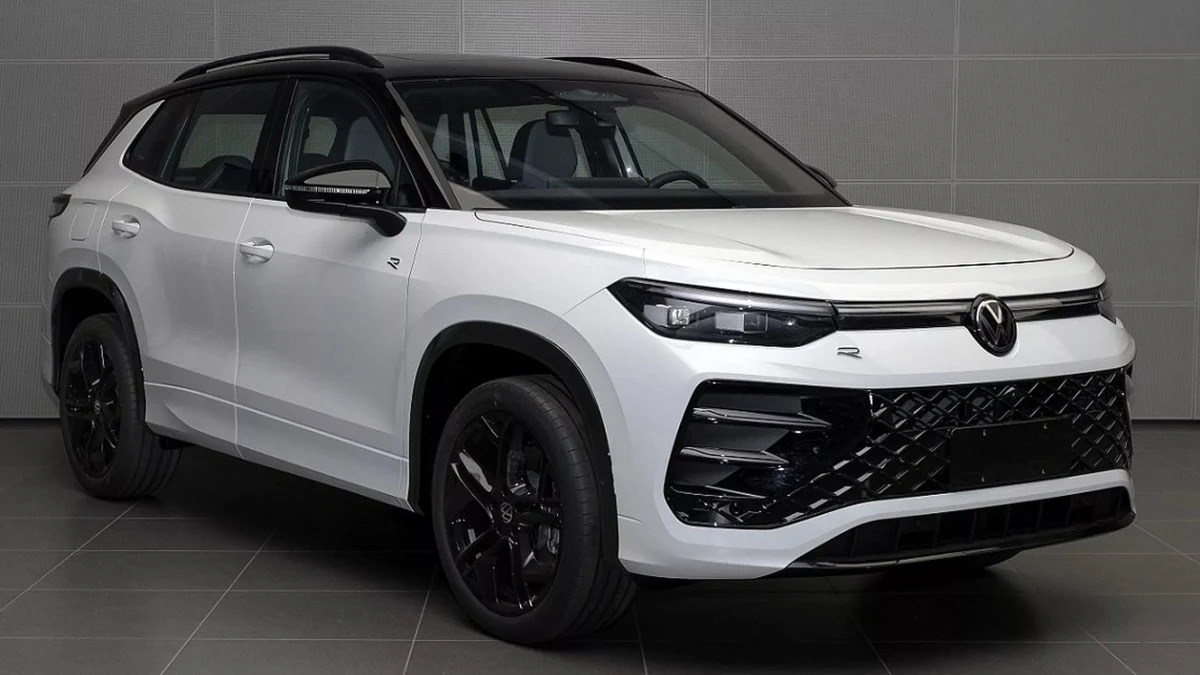Our third-generation 2025 Volkswagen Tiguan will be the global version of a second-generation crossover about to be introduced in China, the Tayron L. VW’s remixing the global Tiguan formula, so some markets that sell a five-seat Tiguan and a seven-seat Tiguan Allspace will get this new model as the Tayron, replacing the Tiguan Allspace. Our version sticks to the Tiguan name since we only get the seven-seat Tiguan here. What’s the Tayron L got over its predecessor? Not much for us: Larger dimensions and a little more room, a revamped interior with better buttons, a fresh design, and some sort of hybrid power. As it’s based off the same MQB Evo platform as our existing Tiguan, this is more about cosmetics than the mechanicals.
According to figures from China’s Ministry of Industry and Information Technology (MIIT), the Tayron L measures 184.4 inches long, 73 inches wide, and 66.3 inches tall, on a 109.9-inch wheelbase. The R-Line trim is about a half-inch longer thanks to resculpted bumpers. Compared to the U.S.-market 2024 Tiguan, the Tayron L is 4.8 inches longer, 0.5 inch wider, and 1.7 inches taller, on the same wheelbase. At one point, VW said this would equate to 1.17 cubic feet of additional cargo room compared to today’s Tiguan. If anyone’s wondering, the Atlas is 14 inches longer and five inches wider, so there won’t be any confusion.
The Tayron’s lines are a touch more imposing than those of the Tiguan, emphasized by the full-width light bars front and rear. China will offer four trims to start, including two R-Line grades, based around two engines in three outputs — a 158-horsepower 1.4-liter four-cylinder, and a 2.0-liter four-cylinder with either 184 hp or 217 hp. In the usual VW way, the variants appear mainly differentiated by touches such as the grille and rear diffuser inserts, and at least one of the R-Line versions in China can be with a black roof and matching black panel in the nose. We’ll get the 2.0-liter, reportedly in mild-hybrid guise, and it could be soon joined by a plug-in hybrid powertrain option. The slightly smaller European Tiguan eHybrid PHEV serves up a combined 265 hp and 62 miles of all-electric driving on the WLTP cycle.
Inside, we’re expecting upgraded specs like a refined digital cockpit, new heads-up display, available 15-inch infotainment screen and rotary controller, physical buttons on the steering wheel, and a shifter on a steering column stalk.
Production’s said to begin in early 2025, a debut is expected later this year.

